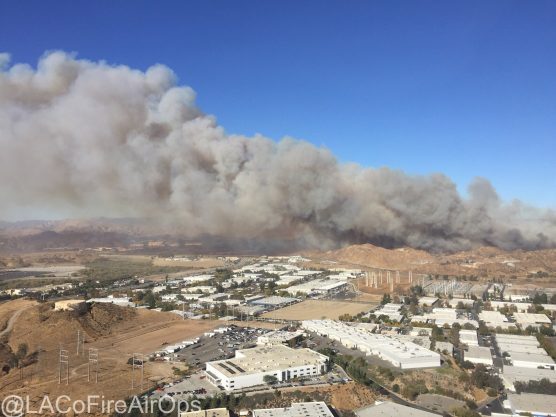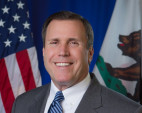By Nick Cahill
SACRAMENTO (CN) – Rushing to keep California utilities investment-grade and out of bankruptcy, state lawmakers Monday approved a $21 billion fund that the utilities could tap into for future wildfire-related liabilities.
The fund is the product of months of brainstorming by a wildfire task force compiled by the Legislature and Governor Gavin Newsom following the catastrophic 2018 wildfire season. Finalized just last week, supporters say the proposal is necessary to head off ratings downgrades that credit agencies are planning for California’s largest utilities in the wake of Pacific Gas & Electric’s high-profile bankruptcy case.
Newsom is pushing lawmakers to pass the fund, which would be paid for by both ratepayers and utilities, by Friday.
On Monday, the proposal sped through two committees before the Senate approved it with a 31-7 vote. Now, it heads to the state Assembly.
Rescuing utilities from further credit downgrades would allow them to secure better loans and stem massive ratepayer increases, the bill’s sponsors testified Monday.
Assemblyman Chris Holden, D-Pasadena, alluded to PG&E’s flimsy finances while presenting his measure to the Senate Energy, Utilities and Communications Committee.
“We must take necessary steps to ensure that we have fiscally stable electric utilities in the state,” Holden said. ”One went to junk bond status and then bankruptcy, another faces the same plight this summer if we do nothing.”
The proposal, Assembly Bill 1054, allows utilities that have passed an annual safety certification process to access a $10.5 billion fund, along with the ability to take out loans from a separate $10.5 billion “liquidity fund” raised from charges to monthly electric bills.
Proponents are hoping the options will give utilities adequate access to credit after wildfires to discourage them from filing for bankruptcy.
Utilities would only be able to access the fund if they comply with strict safety standards that include getting certified annually. In addition, the certification process will be tied to executive pay and the utilities would be compelled to spend $3 billion on infrastructure safety projects from which investors cannot profit.
PG&E, which regulators have blamed for sparking the catastrophic 2018 Camp Fire, would only be allowed to access the fund if it settles existing wildfire liabilities and bankruptcy case by June 2020.
The bill ultimately must be cleared by a two-thirds majority in both chambers before landing on the governor’s desk.
There is also a companion measure to the proposal, Assembly Bill 111, which would create a committee to oversee the new wildfire fund if A.B. 1054 is enacted.
Critics of the proposal paint it as a bailout for utilities and another setback for wildfire victims.
“This Christmas tree for utilities has too many ornaments on it,” testified William Abrams, who lost his home in the 2017 Tubbs Fire. “There are loopholes put into this bill that the utilities and their attorneys will drive trucks through.”
Others, including Republican State Senator Ling Ling Chang, said they have not had enough time to delve into the 98-page bill that was amended late Friday. Chang abstained from voting on the measure in the energy committee hearing Monday.
Supporters of the proposal include Up from the Ashes – an advocacy group for wildfire victims – the Utility Reform Network, the National Resources Defense Council, and Southern California Edison. PG&E is currently neutral on the bill.
The senators that voted yes for A.B. 1054 in the first committee hearing of the day said many of the critics’ claims were misguided and contended that the Legislature has been pursuing many of these reforms since before Newsom took office.
State Senator Bill Dodd, D-Napa, acknowledged that the current proposal isn’t perfect but called it the state’s “best hope” to prevent skyrocketing consumer electricity bills in the event of another catastrophic wildfire.
“Make no mistake – it is not a utility bailout. It’s a ratepayer bailout,” Dodd said.
Like this:
Like Loading...
Related





 Tweet This
Tweet This Facebook
Facebook Digg This
Digg This Bookmark
Bookmark Stumble
Stumble RSS
RSS


























REAL NAMES ONLY: All posters must use their real individual or business name. This applies equally to Twitter account holders who use a nickname.
0 Comments
You can be the first one to leave a comment.